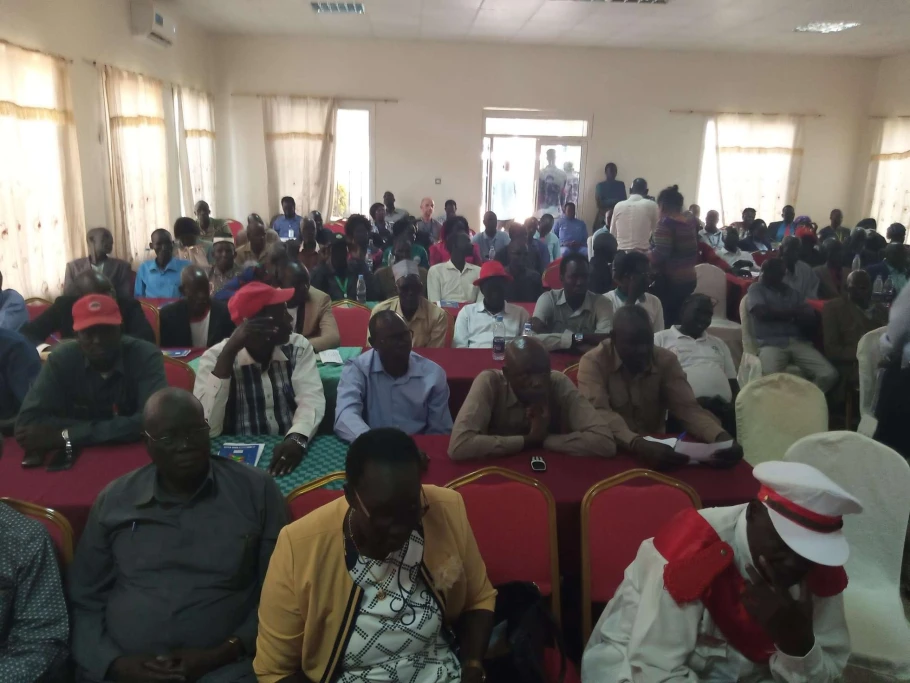
The four-day peace dialogue between Ngok and Twic communities has come to a conclusion without any resolutions, the organizers have said.
The four-day conference was aimed at addressing the intercommunal conflict over land between the Twic of Warrap State and Ngok Dinka of the Abyei Administrative Area.
Since the violent clashes over Aneet area erupted over a year a go, armed youth have been attacking each other, obstructing humanitarian aid and access.
During the conference, the mediators proposed four resolutions to the conflict: reopening of the road connecting the two areas, deployment of soldiers and creation of a buffer zone in Aneet, cessation of hostilities and return of allies that are supporting the two communities.
However, representatives of the two communities at the conference — which was held in Wau, Western Bahr el Ghazal State — disagreed on deployment of SSPDF soldiers and creation of buffer zone in Aneet, the contested area.
“In the meeting of Akon, President didn’t mentioned moving away from the Aneet, God is our witness in this, we as Ngok community are ready to sign the resolution Ngok community remaining in Aneet,” said Bulabek Deng Kuol.
For his part, a paramount chief from Twic County, Garang Nyuol Bol, said: “If they take their administration away from Aneet, I will have no problem of signing the document.”
The peace dialogue was organized and supported by several partners, including the United Nations Development Program, UN Mission in South Sudan, Concordis, and International Organization for Migration.
Stephen Mawien Mou, project manager for Concordis, said his organization would be ready to organize another peace dialogue.
“To us as partners, ours is what community has said. If Twic and Ngok community make a call today that they want to resume talks, we can organize another sitting,” Mawien stated.
The peace dialogue was attended by 80 participants from Twic and Abyei and ten others from Aweil, some parts of Warrap, Ruweng, Lakes and Unity states. Other states are to act as witnesses of the conference.
Also in attendance were women leaders, youth, chiefs, state and national members of parliament, Warrap and Western Bahr el Ghazal governors and Abyei administrator and civil society groups.